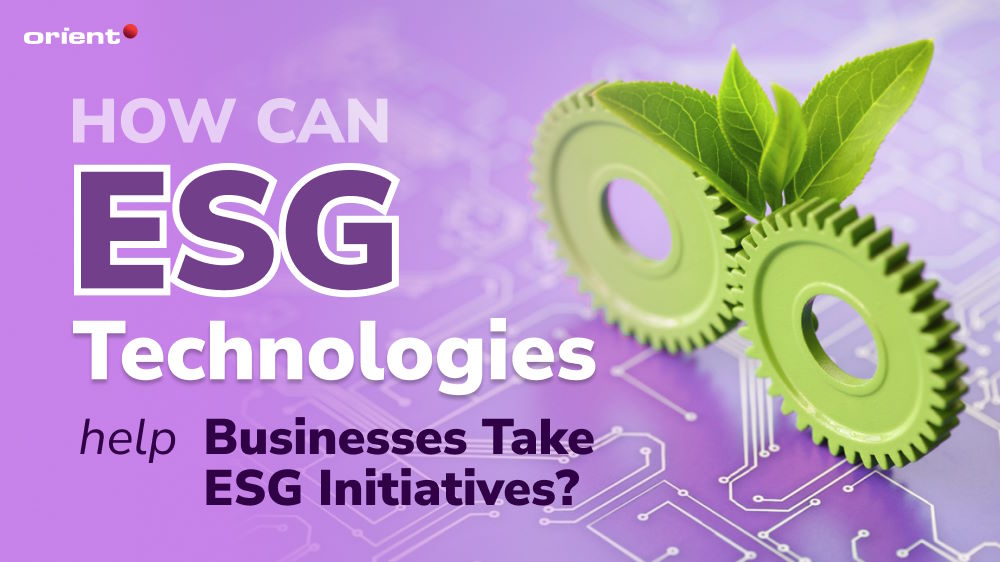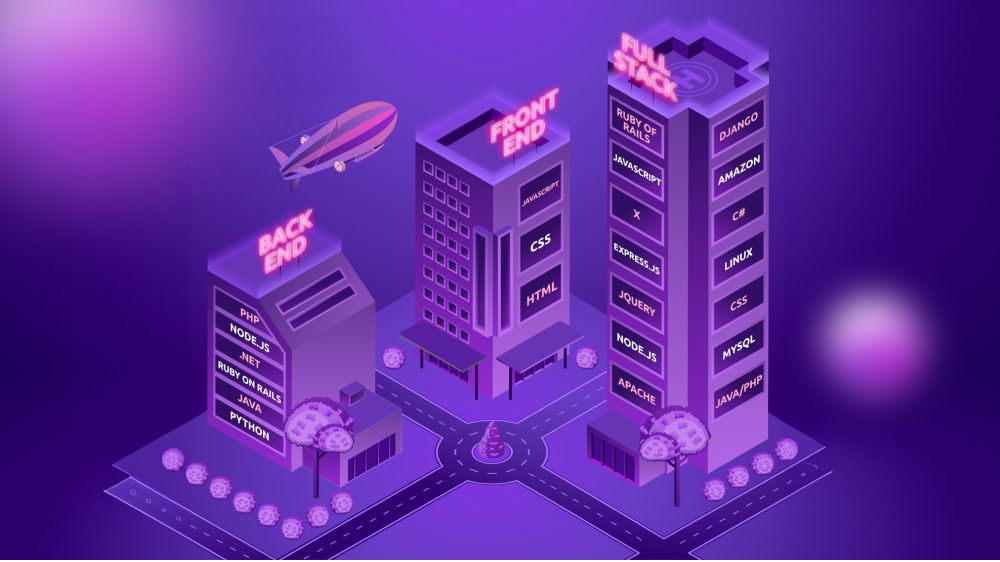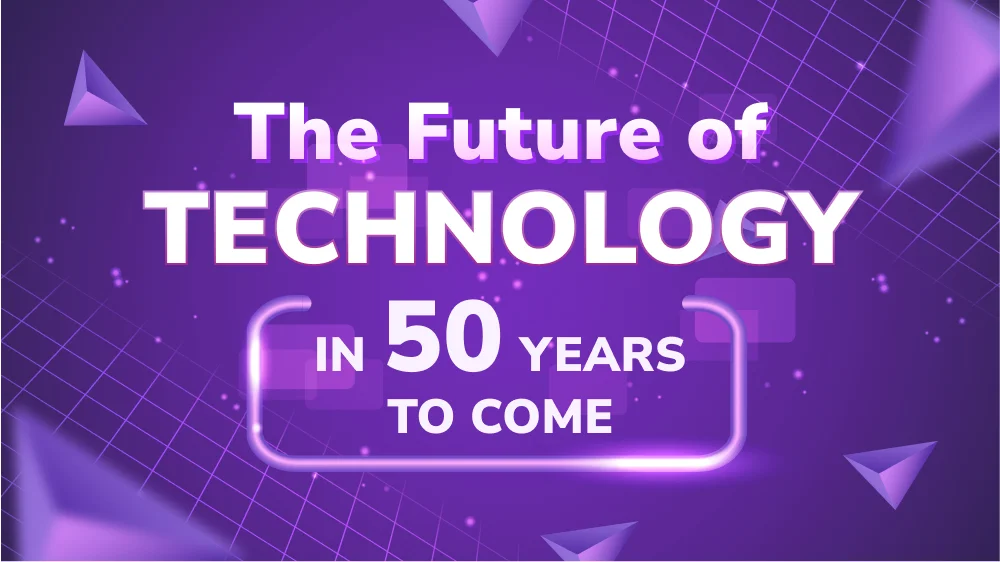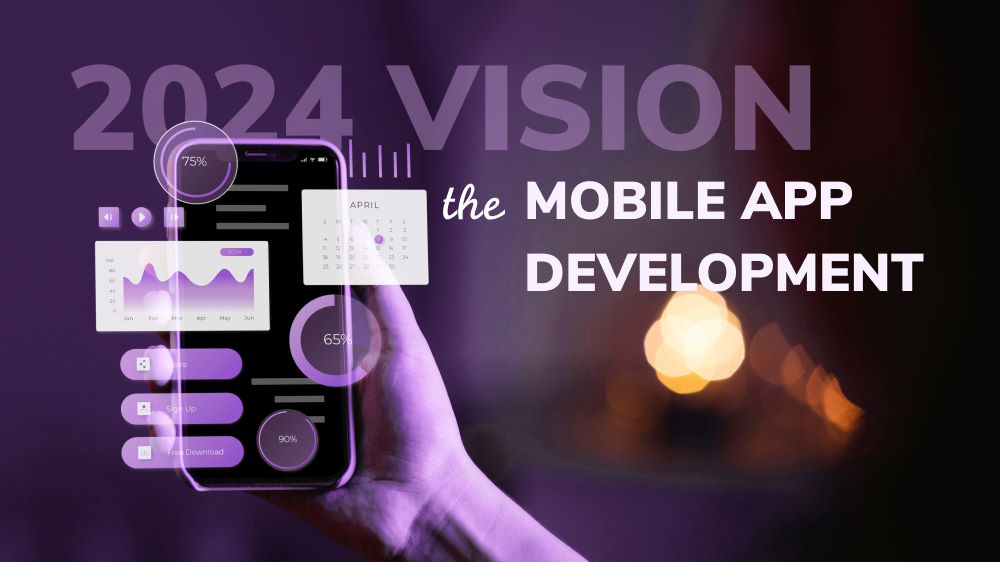How Can ESG Technologies Help Businesses Take ESG Initiatives?

Content Map
More chaptersESG stands for Environment, Society, and Governance. It combines initiatives previously known as Corporate Social Responsibility (CSR), sustainability, or the Triple Bottom Line. Unlike previously unstructured initiatives that businesses did mainly for reputation building, ESG initiatives are structured with frameworks and metrics. These evolving standards guide businesses in tracking, reporting, sharing their ESG values, and mitigating ESG risks. Why has ESG become crucial for businesses? How can companies use ESG technologies to provide better reporting for themselves and their stakeholders?
What Is ESG?
The E in ESG - Environment - addresses a business’ impact on the environment, and vice versa, the risk of a company being affected by extreme climate events. Measurable criteria include carbon emissions, energy consumption, water and waste management, raw material sourcing, etc. Environmental initiatives are the most common in ESG, because the quantifiable climate-related metrics enable the feasible application of ESG technologies.
The S in ESG - Social - concerns the impact and risks from societal actions, people, and the communities in which a business operates. This includes labor practices, health and safety, diversity and inclusion, etc.
The G in ESG - Governance - refers to the quality of decision-making and governance structure. Smaller themes include business ethics, data security, external disclosures, policies, among others.
Overall, taking ESG initiatives means pursuing a strategy of confronting existing environmental and social problems, assessing long-term risks, and mandating sweeping changes across departments. ESG technologies help companies break down such strategy into manageable chunks, streamline tracking, and standardize reporting.
Why Are ESG Initiatives Important?
Since the mid-2010s, corporate leadership has noticed the following advantages of having an ESG initiative.
Exponential Growth in ESG Investments
Global sustainable funds have skyrocketed from $5 billion in 2018 to roughly $190 billion by mid-2022. Such momentum was not dampened by the recent economic recessions, compared to other sectors. ESG investments have been a pandemic winner.
Long-term investors are placing a higher value on companies with an ESG initiative - they see it as an indication that the company is proactively building resilience in weathering crises and preparing for long-term growth.
Increasing Customer and Employee Expectations
Parallel to growing investments, customers are becoming increasingly aware of the environmental and social impact a company can have on local communities and biodiversity.
According to Edelman Trust Barometer 2021, high-income earners worldwide place at least 43% more trust in businesses that proactively address ESG issues such as climate change, economic and social divide, and discrimination. 68% agree that companies should step in to fix societal problems where governments have failed.
Moreover, committing to ESG goals can be a unique value proposition that makes a company attractive to progressively-minded workers. Gen Z and millennials have become more influential in pushing for stronger awareness of sustainability and social progress. Such cultural shift is reshaping where and how they choose to work. As they are filling up key positions in the workforce, taking committed ESG actions is quickly becoming a must-have condition to hire forward-looking, motivated, and engaged staff with relevant skills. More and more younger employees are no longer happy with treating ESG as a hobby; they expect to actively participate in ESG initiatives.
Legislative Pressure
Governments and NGOs are placing more expectations on enterprises to comply with ESG frameworks. Lawmakers in the US are seriously considering making ESG disclosures mandatory, while a majority of the S&P 500 and Russell 1000 companies have released ESG reports, according to the G&A Institute. Across Europe, ESG-related legislations have mandated companies to report carbon emissions, and climate and biodiversity risks.
An ESG framework is a set of guidelines that direct a company’s ESG commitments. ESG frameworks are created by various organizations, including NGOs, stock exchanges, think tanks, and governments. Examples are the European Financial Reporting Advisory Group (EFRAG), the Global Reporting Initiative(GRI), and the International Sustainability Standards Board (ISSB), among others. These frameworks provide structure to ESG reporting, such as the metrics to track and report, the necessary processes, tools, and people.
However, ESG frameworks can be the biggest challenge to quality ESG reporting because of their current lack of consolidation. Depending on your chosen framework, your ESG evaluation differs from another company’s. Efforts have been made to standardize ESG frameworks, but this is still a work in progress.
Despite such challenges, companies should provide ESG reporting to prove their transparency to stakeholders. A key stakeholder is perhaps the private ESG rating agencies, such as MSCI, Refinitiv, and S&P Global. They pull publicly available data, including your ESG reports, to give you an ESG score that will be shared with all interested parties. Investors, customers, employees, and regulators will factor in such ESG scores in their assessment of your company’s ESG risks.
Having your own ESG reporting is a proactive way to influence the process whereby your company’s ESG effort earns an accurate assessment.
What Can ESG Technologies Do for Your Company?
Since ESG reporting is still in its nascent state of development, investors are still doubtful of companies’ ability to deliver their ESG promises, according to Edelman Trust Barometer Special Report 2021. If your company could take the initiative to provide thorough ESG reporting, you would stand out and earn investors’ trust.
Since ESG is so broad, a company should not be expected to fulfill all aspects of it. Instead, companies can commit to making ESG part of their core strategy by designing a road map to prioritize some ESG objectives step by step. They enlist the help of ESG technologies precisely for this purpose. Here are some recent developments in the issue of technology-enabled ESG reporting.
Digital Transformation as The Prerequisite for ESG Technologies
ESG technologies build upon the foundation of ongoing digital transformation. This includes cloud computing, the Internet of Things (IoT), artificial intelligence (AI), and blockchain. If your company is still using a legacy system, you need to modernize it. The primary purpose is to introduce new technologies into your system. This involves setting up mechanisms and processes that gather real-time data. A well-functioning data infrastructure provides you with the big picture and granular insights into your ESG initiative.
AI-enabled ESG Reporting
IoT technology and cloud computing connect your devices and streamline ESG-relevant data aggregation from across your organization into one place. Then, machine learning (ML) models are trained on the data to reveal major ESG-related trends. ML-enabled data visualization can measure your ESG tendencies against the chosen ESG frameworks, and benchmark your ESG performance against the expectations for your industry.
For example, such technologies can enable you to see, at a quick glance, your energy consumption profile across all facilities, including non-renewable and renewable energies. The resulting disclosure is generated, and ready to be integrated into your subsequent ESG reports. AI-enabled software can automate certain processes in producing investor-grade ESG reports that can withstand scrutiny.
More importantly, ESG reporting benefits you, revealing where your organization wastes essential resources and the resulting risks. Benchmarked against external ESG frameworks, these reports can suggest how these risks can be mitigated.
Trust Building
If harnessing the power of AI has been in your playbook for several years, then an ESG commitment could be to address AI biases and data privacy. The paradox is that as consumers and employees are getting vigilant about the collection of their personal data, your AI system will get less data, which may impair its ability to learn. This may lead to flawed AI decision-making and embarrassing mistakes. How to gain trust with privacy disclosure is part of ESG reporting, which may result in a consensus between your need to collect relevant data for better machine training, and the consumers’ trust in your ability to protect their privacy.
Blockchain technology allows you to trace sources of raw materials and assess their environmental impact. It also enables proof of authenticity and ownership to protect your and your customers’ assets against fraud and cyber threats. Essentially, it helps improve your trust and transparency scores.
Green Software Practices
Data centers have notoriously high electricity consumption. How a software product works with its hardware resources impacts its energy need. With AI applications on board, such needs will only increase over time. Apart from using renewable energy sources to power data centers, you can implement green software practices.
Green software development practices aim to optimize software to be energy-efficient. You can ask your software development team or partner how your software can be subject to energy monitoring.
Improve Diversity and Upskilling
For the Social aspect of ESG, several applications are possible. A data-enabled audit of your organization can reveal the socio-economic composition of your employees, highlighting the departments that would benefit the most from more diverse members and viewpoints. Diversity has proved to be an ingredient of innovation and excellent customer service. With AI analytical tools to monitor and analyze equity in promotion, your organization will be the first to benefit from stronger self-awareness, giving you plenty of time to come up with solutions before the issue is made known to interested parties.
AI-enabled learning solutions can also help in upskilling your workforce with highly personalized training, and providing holistic care for employees’ mental well-being. These tools help retain existing employees and attract potential employees who will see you as a trusted and capable employer.
Wrapping Up

Committing to ESG initiatives is challenging due to the wide range of issues, tracking, and assessment frameworks. Nevertheless, your company is the first to benefit from ESG reporting. The practice identifies the risks that threaten your company’s long-term viability. The promises are indeed enticing:
- Future-proofing your organization against extreme climates
- Limiting your adverse environmental impact
- Maintaining an effective talent pipeline and engaged workforce
- Ensuring transparency
- Securing the trust of investors and customers.
ESG technologies are still emerging. By taking the initiative in applying technologies to your ESG commitments, you have the chance to lead the pack.







